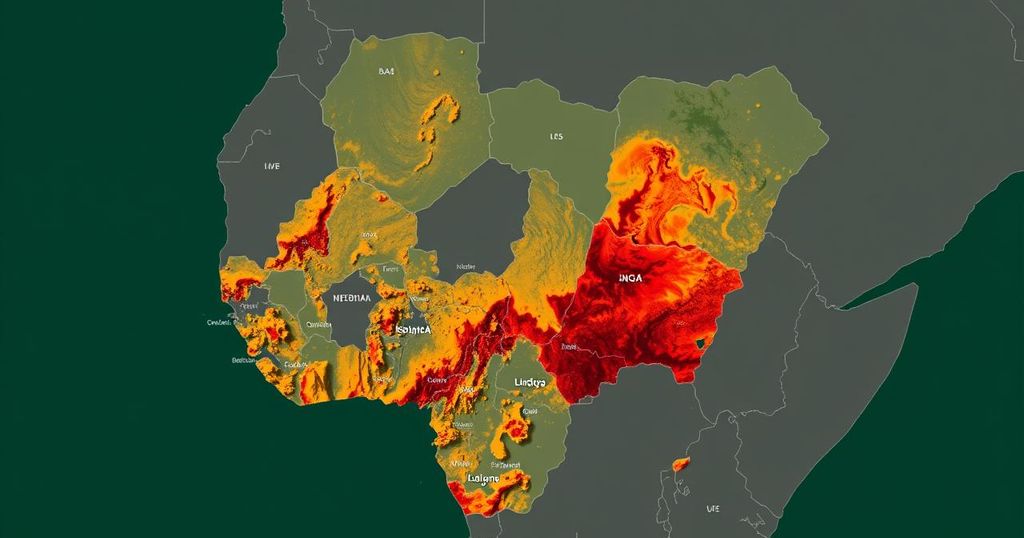Climate change and armed conflict in northeastern Nigeria have led to a sharp rise in malnutrition, with a reported 24 percent increase in affected children. The ICRC highlights that violence significantly disrupts agricultural activities, compounding the effects of climate change, resulting in widespread food shortages, predicted to affect over six million people in the Lake Chad region.
The intersection of climate change and protracted armed conflict continues to exacerbate the crisis of malnutrition in Nigeria, particularly in the northeastern region. The International Committee of the Red Cross (ICRC) has reported a significant rise in severe malnutrition cases, noting a staggering 24 percent increase in afflicted young children compared to the previous year. In the Lake Chad area, families are increasingly struggling to secure adequate food for their households due to both armed conflict and adverse climate conditions. Rabiatu Jubrilla shared her heartbreaking experience regarding her son’s deteriorating health after she ceased breastfeeding him at one year and nine months, leading him to rapidly lose weight. The ongoing conflict has disrupted agricultural practices, displacing millions of residents and diminishing access to farmlands crucial for food production. Local farmers, such as Paul Ezra from Madagali village in Adamawa State, have expressed their immense challenges: “We don’t have enough farmland. Before, we used to go out in the fields to farm. But now, Boko Haram and other armed groups have taken over the bush.” The violence has markedly intensified over recent months, with conflict in the Lake Chad region increasing by 58 percent in the first half of 2024, according to ICRC’s Nigeria Head of Delegation, Yann Bonzon. This escalation has significantly hampered local communities’ ability to cultivate crops and access markets. Additionally, the reliance on subsistence farming renders these communities particularly susceptible to the ramifications of climate change, including erratic rainfall, which adversely affects agricultural yields. The recent heavy floods have swept away seeds, dashing hopes for future harvests following a difficult lean season. The consequences of this crisis are dire, as underscored by farmer Abubakar Bello Duhu, who noted, “We have people who fainted and are at the hospital. Others have died because there is not enough to eat.” The ICRC anticipates that over six million individuals within the Lake Chad region will face food shortages in the ensuing months as a result of these dual crises of conflict and climate change.
In Nigeria, especially in the northeastern region, the interplay between climate change and ongoing armed conflict has resulted in a humanitarian crisis characterized by severe malnutrition, particularly among children. Factors contributing to this situation include displacement from violence, destruction of livelihoods, and obstacles to agricultural production, all compounded by the adverse effects of climate change such as unpredictable rainfall and flooding. The Lake Chad region, heavily reliant on subsistence farming, has become increasingly vulnerable, leading to alarming reports of rising malnutrition rates and food insecurity.
The situation in Nigeria’s northeastern region is a stark illustration of how climate change and conflict converge to create a crisis of malnutrition. The increase in violence and disruption of agriculture have led to significant challenges in food accessibility, resulting in a predicted rise in food shortages. As these crises unfold, the international community’s attention and intervention will be crucial in addressing the urgent needs of the affected populations.
Original Source: www.africanews.com






